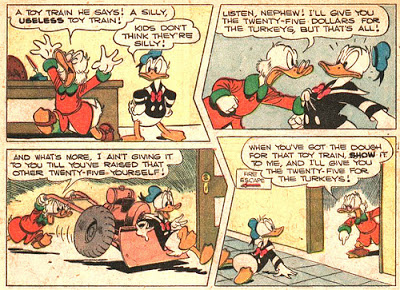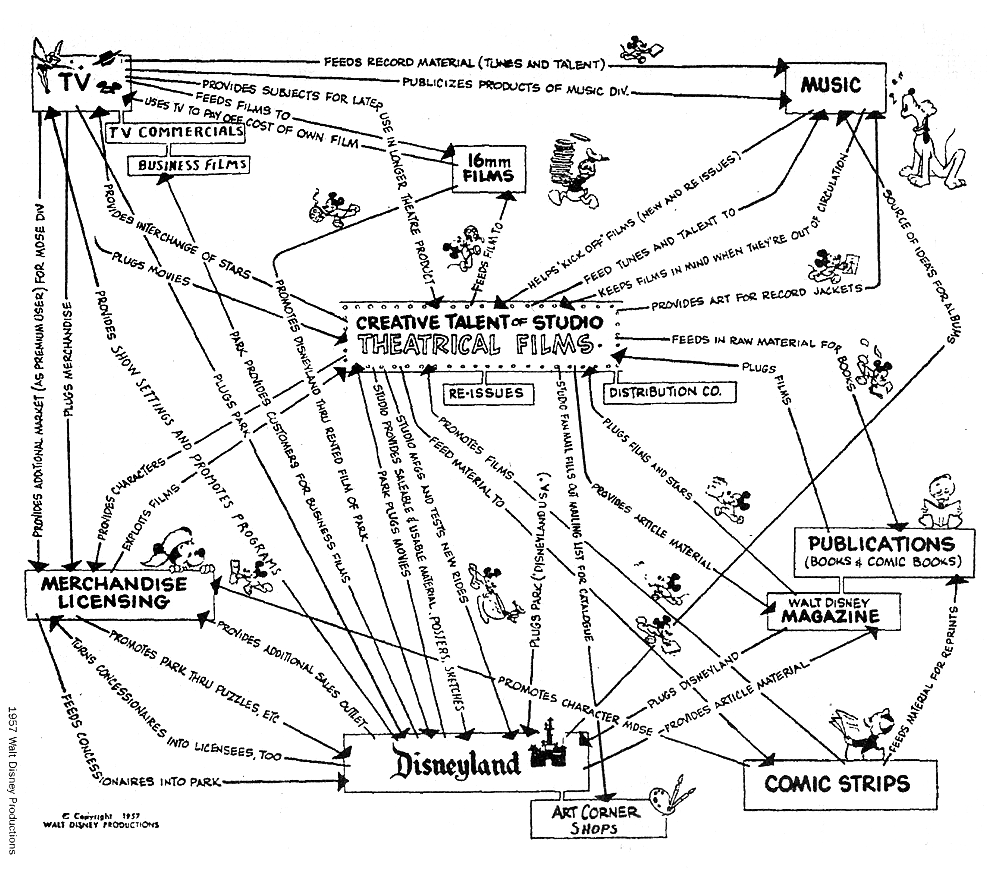Comics without covers
As I kid, I read a bunch of comic books. Actually, scratch that. I had a collection of a few dozen comic books, but I just read them over and over again.
None of them had covers.
And it’s not because I was a destructive child.
Here’s a bit of information about the publishing industry you may not know. Books are sent to a bookstore for free by the publisher. Often a bookstore will ship back the books that don’t sell, but sometimes it’s not worth the cost of the return trip. So publishers ask the store to (essentially) destroy the books. But, of course, it would be very easy for a bookseller to just say that the books were destroyed, but sell them anyway. So publishers ask the booksellers to ship them the cover, as proof that the book has actually been destroyed. The coverless books can’t be sold, but they are still plenty readable.
Growing up, a friend of my parents gave me a box of coverless books and comic books that she had gotten at her job. It was the entirety of my comics collection for several years.
So there I was, with an absolutely random collection of comic books from the late 1980s. There was no rhyme or reason to what I had. No sequence, no interlocking stories, and no covers to even give me a hint about what (or who) the comics were about.
I remember Captain America reduced the size of the Avengers and a bald lady showed up to mediate (or something). The X-Men got turned to glass. Archie and Jughead went to the 1988 Calgary Winter Games. Spider-Man had a weird alien suit. Daredevil woke up bound and in an underwater pipe. A bizarre parody comic book actually helped me know the names of some of the characters in the other comic books.
I remember those stories so well because they were all I had. To this day, I don’t know what happened after the X-Men got turned to glass, or who the bald lady was that intervened in the reduction of the Avengers.
Continuity
Eventually I subscribed to a comic book. I chose Spider-Man. He was my favorite of what I read, but I was disappointed when I started reading. I got hooked with the “Maximum Carnage” storyline.
That’s when I discovered just how vast the comic book universe was.
I was reading what I thought was the Spider-Man comic, but to read the Maximum Carnage storyline I needed to find comic books from five different comic series (Spider-Man Unlimited, Web of Spider-Man, The Amazing Spider-Man, Spider-Man, and The Spectacular Spider-Man).
Five series! About just Spider-Man. I was thoroughly confused and gave up.
Only as an adult did I try to return to comic books. On advice of my friend Joe, I checked out the Marvel Ultimate series, which re-started the main Marvel characters without the decades of backstory. It was a way to follow the comic-line fresh, and I thoroughly enjoyed starting at the beginning of Ultimate X-Men and Ultimate Spider-Man.
The enjoyment of the continuity in those series made me seek out more about the continuity between Marvel movies. Marvel has created the “Marvel Cinematic Universe” which is the common universe that all the movie and TV characters live in. The scope of this fascinates me. For example, a crucial event at the end of Captain America 2 dramatically affected the main storyline in the TV show Marvel’s Agents of SHIELD. That’s a hard continuity to pull off.
The X-Files did it in the 90s when they launched their first movie in sequence with the show (Season 5 season ended, the movie picket up where it left off, and Season 6 started where the movie left off). It was a big deal then, but pales in comparison to Marvel’s plans. Currently Marvel is working on four TV shows on Netflix and today they announced their movies through May of 2019. All in the same “universe.”
(Again, the planning involved in trying to make that work boggles the mind.)
But there is another point to note as well: how much this cinematic universe is going to start mirroring the comic book world.
In the comic books, the writers would reference the issue when some event happened that the characters in the scene were talking about. So, in the corner of a panel would be a note: *See Ish 346 or something like that. For me, with my comic books without a cover, I had no way of finding issue 346–I wasn’t even sure what series I was reading.
The benefit of moving over the “backstory” to the Marvel Cinematic Universe is that fans of movies will start watching shows and vice versa. This worked for me. I enjoyed Captain America 2, so I started watching Agents of SHIELD to see what happened next. It’s a not-great but not-terrible show, but I’ve kept watching since then.
But can I keep up with four TV shows plus the movies? Does Marvel expect me to? Or does Marvel run the risk of sinking into a morass of its own cross-references and Easter eggs only intelligible to those who do keep up with everything? (Guardians of the Galaxy was a good summer popcorn movie, but it’s slowest parts occurred when it tried to fit into the rest of the Cinematic Universe.)
The Paradox of Choice
The other thing I’m reminded of is the sheer explosion of culture. With a few channels of primetime, shows had to cater to mass-demographics. Now people can choose the exact kind of TV and movies they enjoy.
It’s not just in culture that this has happened, either. It’s happened everywhere.
Goldfish crackers sell 39 different kinds of goldfish (which makes the choices at Baskin & Robbin’s seem downright limited). Crest sells 56 different kinds of toothpaste for adults.
Barry Schwartz criticizes this trend in his book The Paradox of Choice (here’s the TED talk about it). It’s a critique of our market-based system. Basically he argues that it’s good that we have a choice in toothpaste, but that it’s paralyzing to have to choose between 56 kinds of toothpaste from one manufacturer alone (let alone all the others). The value we get from toothpaste doesn’t match the time it would take to choose the exact right one for us.
The subtle other reason that these corporations like to produce so many different varieties of their products is not just that they want to offer consumers the exact right product for that particular consumer. Sure, it’s great that I get to try all different kinds of Goldfish crackers to find the kind I really want, but what Goldfish really wants is this: shelf space. Goldfish used to be next to Triscuits and Ritz and Saltines. You used to decide what kind of cracker you wanted between them. But now you decide what kind of Goldfish cracker you want. Or Triscuit. Or Crest.
Or Marvel entertainment feature.
Ubiquity
Marvel is making a bet on ubiquity. They want to fill the summer release calendar the same way Goldfish wants to fill the cracker end-cap.
Instead of choosing Marvel vs. DC, they want you to choose within Marvel.
Look at this mind map by Walt Disney of how the studio’s films, TV show, and theme park all work together to make the company the engine that it was at the time. (Click to zoom in, it really is fascinating.)
Change out the mice and ducks for superheroes, and you get a pretty good understanding of what Marvel’s attempting. (There’s a reason that Marvel is really getting good at this after being bought by Disney.)
There’s a lot that still remains to be seen with Marvel’s plans. What happens if one of the movies in this universe is a bomb at the box office? Can these shows truly all exist in the same universe without stagnating? Can Marvel create a continuous world built in movies and film from 2008’s Iron Man to (at least) 2019 Avengers that casual fans can actually follow? Can Marvel keep building in better roles for women and minorities? (Captain Marvel and Black Panther being a good step in that direction.) Can a series plotted out so far stay relevant to the changing times?
It’s a much more audacious plan than a lot of people realize. I’m going to be fascinated to see if it works.

